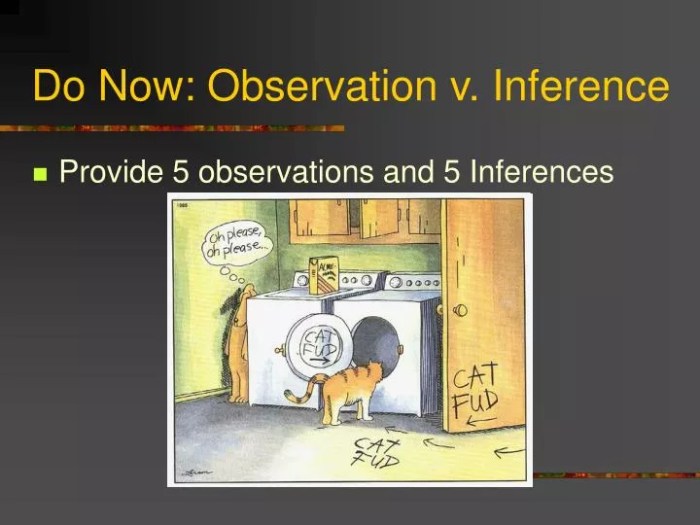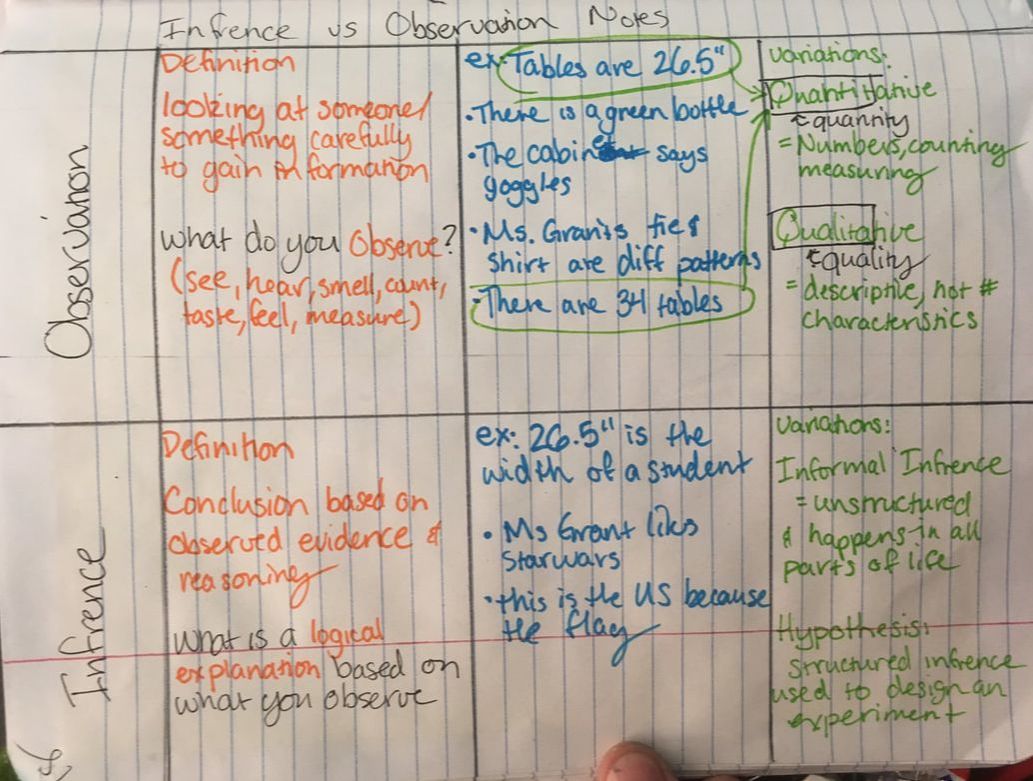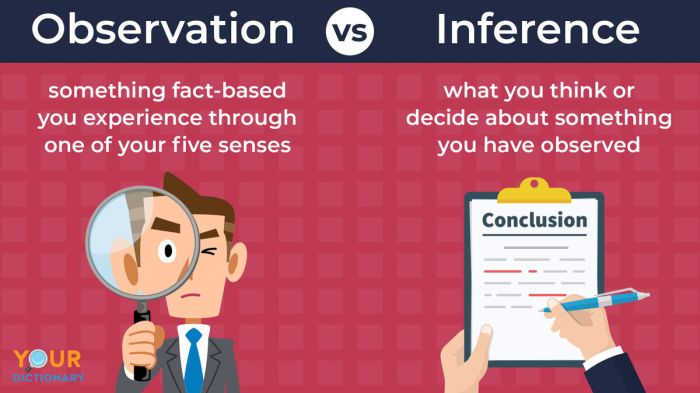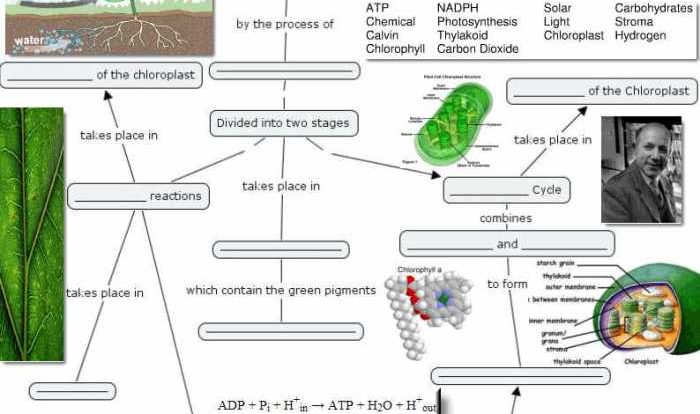Observation vs inference worksheet answers provide a crucial foundation for understanding the scientific process. This guide delves into the concepts of observation and inference, exploring their definitions, differences, and significance in scientific inquiry.
Observation vs Inference

Observation and inference are two essential skills in science and everyday life. Observation is the process of gathering information through our senses, while inference is the process of drawing conclusions based on observations.
Observations are objective and can be verified by anyone. Inferences, on the other hand, are subjective and can be influenced by our beliefs and expectations.
Observation vs Inference Worksheet
An observation vs inference worksheet is a tool that can help students distinguish between observations and inferences. The worksheet typically consists of a table with two columns, one for observations and one for inferences.
Students are given a list of statements and are asked to identify whether each statement is an observation or an inference. The worksheet can be used as a formative assessment to check students’ understanding of the difference between observations and inferences.
Worksheet Examples, Observation vs inference worksheet answers
| Observation | Inference | Explanation | Example |
|---|---|---|---|
| The sky is blue. | The sky is made of water. | The observation is objective and can be verified by anyone. The inference is subjective and cannot be verified. | |
| The car is speeding. | The driver is in a hurry. | The observation is objective and can be verified by anyone. The inference is subjective and cannot be verified. | |
| The dog is barking. | The dog is hungry. | The observation is objective and can be verified by anyone. The inference is subjective and cannot be verified. |
Methods for Identifying Observations and Inferences
There are several ways to identify observations and inferences.
Observationsare typically:
- Objective and can be verified by anyone
- Based on sensory information
- Stated in the present tense
Inferencesare typically:
- Subjective and cannot be verified by anyone
- Based on beliefs and expectations
- Stated in the past or future tense
Importance of Observation and Inference in Science
Observation and inference are essential skills in science. Scientists use observation to gather data and inference to draw conclusions about the world around them.
Observation and inference are also important in everyday life. We use observation to make decisions about what to wear, what to eat, and how to get to work. We use inference to understand the intentions of others and to predict the future.
FAQ Resource: Observation Vs Inference Worksheet Answers
What is the difference between observation and inference?
Observation is the process of gathering information through the senses, while inference is the process of drawing conclusions based on observations.
How can I identify observations and inferences in a worksheet?
Observations are typically stated as facts, while inferences are often phrased as opinions or predictions.
Why is it important to distinguish between observation and inference?
Distinguishing between observation and inference helps to ensure that scientific conclusions are based on evidence rather than speculation.


